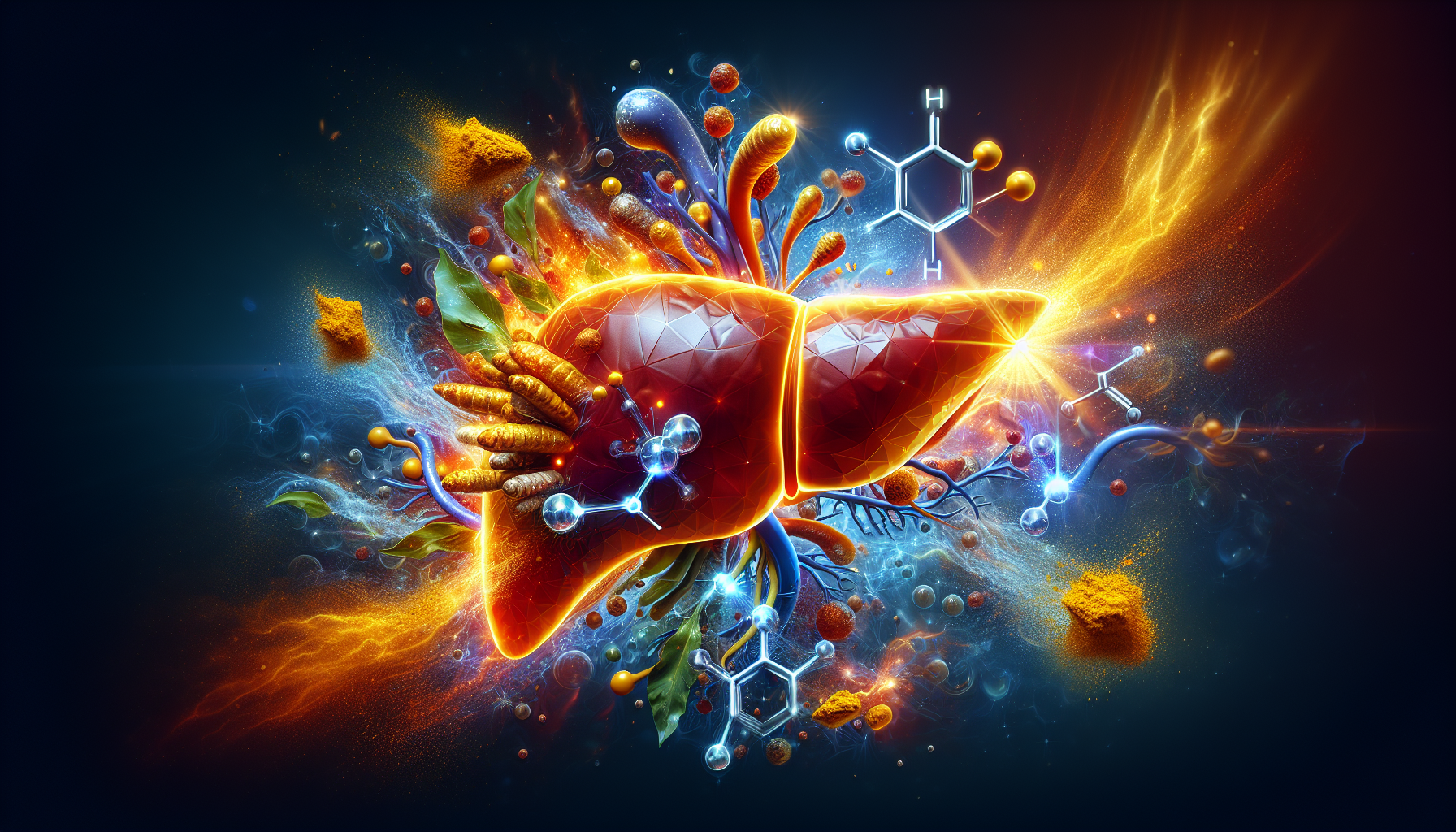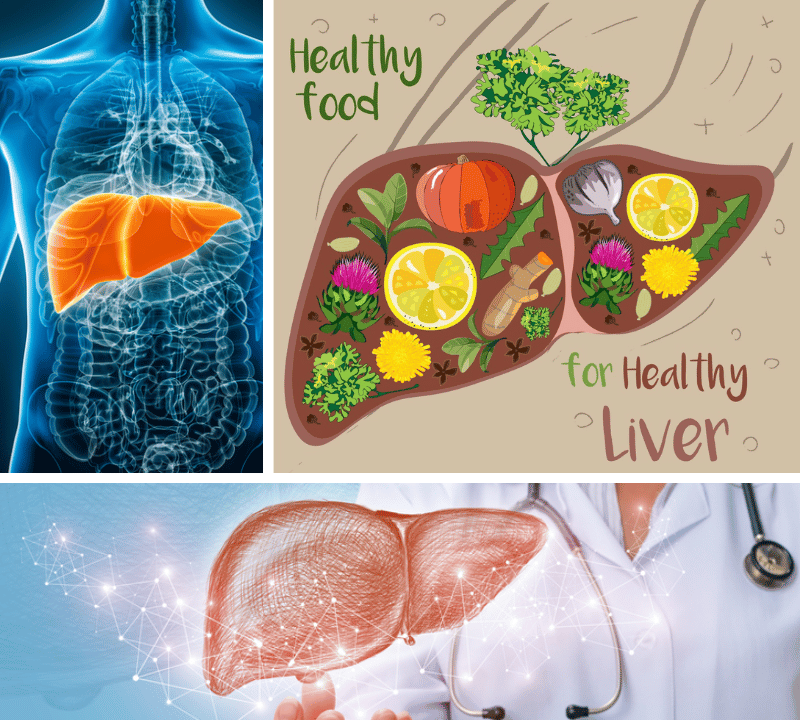Fatty liver disease is a growing concern, impacting millions worldwide. Yet, often, it remains shrouded in confusion. Whether you're battling Nonalcoholic Fatty Liver Disease (NAFLD) or its alcoholic counterpart, the search for effective interventions is crucial. In this detailed exploration, we'll uncover why supplements like milk thistle, omega-3s, and vitamin E are not just supplementary choices but potential game-changers in managing liver health. By delving into cutting-edge research and leveraging expert insights, this article aims to transform the complex landscape of liver health into actionable knowledge, equipping you with the tools to make informed decisions about your health regimen.
Understanding the impact of dietary and lifestyle changes is fundamental in managing fatty liver disease. Yet, emerging supplements such as berberine and alpha-lipoic acid are promising in enhancing liver function tests and reducing liver fat content. This article goes beyond the basics, providing a systematic review and meta-analysis of the latest clinical trials and studies. As we navigate the intricacies of liver enzymes, metabolic syndrome, and insulin resistance, we aim to offer a clear, reliable guide on how these supplements could integrate into your health strategy, ensuring you are well-informed about their benefits, risks, and scientific backing. Join us as we dissect the evidence, demystify the options, and highlight the best supplement for fatty liver, tailored to support your health and overall well-being.
Key Takeaways
- Supplements such as milk thistle, omega-3 fatty acids, and vitamin E are identified as beneficial for Nonalcoholic Fatty Liver Disease (NAFLD) but should complement diet and lifestyle changes.
- Emerging supplements like berberine and alpha-lipoic acid may improve insulin sensitivity and NAFLD, while probiotics can help balance gut microbiota, potentially affecting liver health.
- Caution is advised when considering supplements for liver health: potential interactions with medications, quality, dosage, and existing health conditions must be assessed to ensure safety and efficacy.
Exploring the Best Supplements for Nonalcoholic Fatty Liver Disease (NAFLD)
Nonalcoholic Fatty Liver Disease (NAFLD) is a common liver ailment affecting millions worldwide. With NAFLD, fat accumulates in the liver, leading to potential liver damage and other chronic liver diseases, including alcoholic fatty liver disease. But here’s the good news: supplements may offer significant liver health benefits in the context of fatty liver disease.
Research has identified potential benefits from a variety of supplements. Ingredients like green tea extract, beetroot, and artichoke have been associated with reduced liver fat and liver enzymes and improved liver health markers. Additionally, vitamin A deficiency, prevalent among NAFLD patients, has been linked to the disease’s severity, suggesting a role for supplementation.
While the effectiveness of supplements can vary, certain nutrients have demonstrated the potential to improve liver function. One such nutrient is cryptoxanthin, which has been found to lower liver-environmental enzymes and improve oxidative stress and inflammation in NAFLD and NASH (Nonalcoholic Steatohepatitis, a dangerously progressive form of NAFLD) patients.
Yet, bear in mind that supplements align best with a holistic liver health approach, encompassing dietary and lifestyle modifications. They offer a valuable tool in the fight against NAFLD, but they’re not a silver bullet.
Milk Thistle: A Liver's Ally
Let’s explore supplements with an old favorite: milk thistle. Used for centuries as a remedy for various liver disorders, milk thistle contains an active component called silymarin, which supports liver health.
Silymarin, extracted from milk thistle seeds, protects liver cells from harm. Research supports its role in lowering blood sugar and exhibiting antioxidant and anti-inflammatory effects, crucial for individuals with fatty liver disease. Studies have shown that milk thistle extract can improve markers of liver injury in individuals with NAFLD.
While it may not significantly improve the overall severity of nonalcoholic steatohepatitis (NASH), milk thistle could help reduce liver scarring associated with the disease. Given its long history of use and potential benefits, milk thistle is indeed a liver’s ally. As with any supplement, it’s vital to consult a healthcare provider to ascertain its suitability for your specific needs.
Our article "The 5 Best Milk Thistle Supplements Reviewed" offers an insightful starting point for those intrigued by milk thistle and eager to delve deeper into its potential. This guide meticulously evaluates five top-rated milk thistle with silymarin products, aiding you in navigating the vast market of dietary supplements. To explore these options further and make an informed choice, please visit the link below.👇
Omega-3 Fatty Acids: Beyond Heart Health
Next on our list is a supplement that’s usually associated with heart health: omega-3 fatty acids. But did you know that they also hold promise for NAFLD?
Clinical trials have shown mixed results regarding the effectiveness of omega-3 fatty acids in treating NAFLD. Some studies have observed improvements in blood chemistry and body composition. These fatty acids may reduce liver fat content and inflammation in NAFLD patients through their metabolism-enhancing and protective effects on the liver.
Moreover, omega-3 fatty acids can enhance insulin sensitivity, improving liver health. Additionally, supplementing with omega-3 fatty acids could positively impact the gut microbiota, which may, in turn, lead to improvements in NAFLD.
While more research is undoubtedly needed, the potential of omega-3 fatty acids in managing fatty liver disease is an exciting prospect. As always, any new supplement regimen should be discussed with a healthcare provider.
Vitamin E: Antioxidant Powerhouse
Closing out our exploration of key supplements for liver health is vitamin E. Known as an antioxidant powerhouse, vitamin E helps protect liver cells from damage.
Vitamin E supplementation has been shown to have several benefits for NAFLD and NASH patients, including:
- Reducing steatosis and inflammation
- Improving liver histology
- Improving liver function tests
- Reducing liver enzyme levels
These findings suggest that vitamin E can be an effective treatment option for individuals with NAFLD and NASH.
While vitamin E may decrease the NAFLD activity score, its long-term safety is still being evaluated. This underscores the need for consultation with a healthcare provider before starting any supplement regimen ensuring its safety and appropriateness for your specific needs.
Vitamin E is another valuable tool against fatty liver disease with its potent antioxidant properties.
Addressing Insulin Resistance in Fatty Liver Disease

Having explored key supplements for liver health, let’s focus on a major cause of NAFLD: insulin resistance. This condition, where the body’s cells don’t respond properly to insulin, can lead to:
- increased fat accumulation in the liver
- elevated blood sugar levels
- weight gain
- high blood pressure
- high cholesterol levels
It is important to address insulin resistance to improve liver health and prevent further complications.
Emerging research points to two supplements that may help address insulin resistance: berberine and alpha-lipoic acid. These supplements may improve liver enzymes, lipid profiles, and insulin sensitivity, thus potentially benefiting NAFLD patients.
The diet also plays a critical role in managing insulin resistance. A plant-based diet can enhance insulin function and support weight loss, improving liver health. Additionally, gut dysbiosis, which refers to an imbalance in the gut microbiota, promotes insulin resistance and fat formation in the liver. Dietary prebiotics might offer a therapeutic intervention for NAFLD.
Addressing insulin resistance is a multifaceted approach that includes the right supplements, a healthy diet, and a balanced gut microbiota.
Berberine: Metabolic Modulator
Berberine, a compound found in various plants, is recognized for modulating metabolic processes relevant to managing NAFLD. It has shown significant reductions in liver enzymes such as alanine transaminase (ALT), aspartate aminotransferase (AST), and gamma-glutamyl transferase (GGT), as well as improvements in lipid indices including total cholesterol, triglycerides, and LDL-cholesterol in patients with NAFLD.
Moreover, berberine has shown a potential to enhance insulin sensitivity, as indicated by improvements in the homeostasis model assessment for insulin resistance (HOMA-IR) in patients with NAFLD.
While the safety profile of berberine for treating NAFLD is generally favorable, mild gastrointestinal adverse events have been the most commonly reported side effects. As always, it’s paramount to consult a healthcare provider before starting any new supplement regimen.
For those looking to further explore the potential of berberine in enhancing metabolic health, our article "Master Your Metabolism: How the Best Berberine Supplement Can Transform Your Health" offers a deep dive into the top berberine supplements available today. We review products from leading Nutraceutical companies, each promising to deliver the highest quality berberine extract to support your health journey. This guide gives you a comprehensive overview and a head start in selecting the best berberine supplement tailored to your health goals. To learn more about these top-rated products and make an informed decision, follow the link below.👇
Alpha-Lipoic Acid: Dual-Action Support
Alpha-lipoic acid, a compound found in every cell of your body, has been investigated for its role in reducing inflammation, which may benefit patients with fatty liver disease. It’s also been found to enhance insulin clearance from the liver, particularly in patients with a family history of diabetes.
However, clinical trials have shown mixed results regarding the overall effectiveness of alpha-lipoic acid in liver health. It appears that individual factors like a family history of diabetes can influence the efficacy of alpha-lipoic acid, indicating a need for personalized supplement strategies.
Despite the mixed results, the dual-action support offered by alpha-lipoic acid to both insulin clearance and inflammation reduction makes it a notable supplement in managing NAFLD.
The Gut-Liver Axis and Probiotic Intervention
Now that we’ve explored various supplements and their potential benefits for liver health let’s focus on the relationship between the gut and the liver. This connection, called the gut-liver axis, plays a significant role in liver health.
Dysbiosis, an imbalanced gut microbiome, may play a role in developing or progressing liver diseases such as NAFLD. A disrupted gut microbiome can contribute to these conditions. Age, smoking, and the diversity of gut microbiota are directly linked to the development and progression of NAFLD to NASH. These factors can impact the severity and course of the disease.
On the brighter side, probiotics are important in improving various aspects of fatty liver disease and enhancing liver function. In particular, triple probiotic therapy has shown effectiveness for fatty liver disease, and specific probiotics such as Lactobacillus GG have been shown to reduce inflammation in cirrhosis patients.
Understanding the gut-liver axis and harnessing the power of probiotics could offer a new pathway to improving liver health.
Repairing the Gut Barrier
Probiotics can be pivotal in repairing the gut barrier, a key factor in maintaining liver health. These beneficial bacteria have been shown to restore the balance in gut microbiota and improve intestinal barrier integrity in animal models.
Probiotics can reduce intestinal permeability, which may help prevent the translocation of bacterial products that can contribute to liver inflammation. The outer layer of the intestinal barrier consists of microbiota and proteins such as immunoglobulin A that contribute to gut defense. In contrast, the middle layer consists of tightly bound epithelial cells.
Through their role in restoring gut microbiome balance, probiotics may potentially:
- Improve liver enzyme levels
- Reduce insulin resistance
- Regulate lipid metabolism
- Reduce inflammation in the liver
These effects are crucial for repairing the gut barrier.
Probiotics offer a promising approach to managing fatty liver disease by improving gut health.
Balancing the Microbiome
Balancing the gut microbiome is another critical aspect of managing fatty liver disease. Dysbiosis, an imbalance in the gut microbiota, can contribute to the development of NAFLD.
Specific probiotic strains, such as Lactobacillus and Bifidobacterium, can help manage NAFLD by promoting a balanced gut microbiome. In addition to diet and antibiotics, therapeutic interventions, including prebiotics, probiotics, and fecal microbiota transplantation (FMT), have been proposed to modify the gut microbiota in patients with NAFLD.
Maintaining a balanced gut microbiome is vital for overall health, especially when managing conditions like NAFLD.
Lifestyle Synergy: Diet, Exercise, and Supplements

Up to this point, we’ve discussed various supplements and gut health strategies that can help improve liver health. But, as you might expect, these approaches are most effective with a healthy diet and regular exercise.
Embracing a diet framework centered around Mediterranean or Paleo-style diets can enhance fatty liver health by reducing sugar and refined carbs and prioritizing non-processed foods such as vegetables, fruits, meat, poultry, fish, eggs, nuts, and seeds. Intermittent fasting has also been linked with better liver health, suggesting its synergistic potential when combined with other lifestyle changes.
On the physical activity front, regular exercise is a cornerstone intervention for preventing NAFLD. It helps maintain a healthy weight and reduces fat accumulation in the liver, which is crucial for individuals with NAFLD.
In short, a synergistic approach that combines a healthy diet, regular exercise, and the right supplements can significantly improve liver health.
Weight Management Strategies
When addressing fatty liver disease, achieving a healthy weight through diet and exercise is the primary goal. Losing between 7% and 10% of body weight can reduce inflammation and liver cell injury and even reverse some liver damage. However, weight loss should be gradual, with a recommended rate of 1 to 2 pounds per week, to prevent worsening liver conditions.
Some clinical trials have suggested that Berberine can be beneficial for weight management in NAFLD patients, as it has been associated with a reduction in body mass index (BMI). Another promising supplement is French oak wood extract, which has shown potential in lowering BMI and improving liver fibrosis index for individuals with NAFLD. These findings underscore the importance of weight management strategies in improving liver health.
Dietary Adjustments
Dietary adjustments are another key aspect of managing fatty liver disease. The Mediterranean diet, for instance, can improve markers of liver health, such as waist circumference and blood glucose tolerance, while decreasing the risk of diabetes and metabolic syndrome. Limiting the intake of saturated fats is associated with a lower risk of NAFLD, as they contribute to fatty deposits in the liver.
On the other hand, Western dietary patterns, which are high in:
- processed foods
- red meats
- high-fat dairy products
- refined grains are often lacking in healthy fats.
are linked to an increased risk of developing NAFLD. These risk factors highlight the importance of dietary adjustments in managing fatty liver disease.
A balanced, nutrient-dense diet can go a long way in improving liver health.
Physical Activity's Role
Physical activity plays a pivotal role in preventing and managing NAFLD. Exercise reduces fat in the liver, improves fibrosis, and helps with more severe liver disease. Aerobic and strength training exercises, such as weight lifting, can improve liver health in individuals with fatty liver disease.
HIIT (high-intensity interval training) is another effective exercise option for reducing liver fat. However, it’s important to remember that any physical activity is better than none. Even simple activities like walking can have significant benefits for liver health.
In a nutshell, incorporating regular physical activity into your lifestyle is a crucial component of managing fatty liver disease.
Advanced Nutrients for Liver Support

In addition to the supplements and lifestyle strategies we’ve already discussed, there are advanced nutrients that may offer additional support for liver health. These include medicinal mushrooms, which contain polysaccharides that are being studied for their hepatoprotective effects, and phosphatidylcholine (a class of phospholipids), which is under investigation for its ability to improve liver metabolism and reduce liver fat in those with fatty liver disease.
Curcumin: Anti-Inflammatory Effects
One such advanced nutrient is curcumin, the active compound in turmeric. Curcumin has been shown to reduce inflammation, which is a beneficial property in treating NAFLD. Clinical trials have revealed that curcumin effectively lessens oxidative stress and reduces inflammatory cascades.
Furthermore, curcumin administration led to a significant reduction in liver fibrosis in a controlled clinical trial. Curcumin supports improved glucose metabolism in patients with NAFLD by reducing liver inflammation and fibrosis.
Given its potent anti-inflammatory effects, curcumin is another valuable tool against fatty liver disease.
N-Acetylcysteine: Oxidative Stress Reducer
N-acetylcysteine, also known as NAC, is another advanced nutrient worth considering. Known for its antioxidant properties, NAC may be beneficial for individuals with fatty liver disease. As an antioxidant, it assists in combating oxidative stress associated with liver pathologies.
Supplementation with N-acetylcysteine has been observed to improve liver function, which is crucial for those with fatty liver disease. Furthermore, by reducing fat accumulation in the liver through its hepatoprotective effects, N-acetylcysteine may aid in managing fatty liver disease.
N-acetylcysteine offers another promising approach to liver health with its antioxidant properties and potential to improve liver function.
Emerging Research on Liver Supplements
As we deepen our understanding of liver health, emerging research sheds light on new and promising supplements that could further support liver health. From brown algae polysaccharides that present an anti-steatotic effect and may help prevent NAFLD to telmisartan, which has shown positive effects on conditions like NAFLD and fibrosis scores, the potential for new and effective liver supplements is exciting.
Phosphatidylcholine: Lipid Metabolism Aid
One such emerging supplement is phosphatidylcholine. As an adjunct therapy for NAFLD, phosphatidylcholine has shown potential in improving ultrasonographic liver features like hyperechogenicity, especially in patients with cardiometabolic comorbidities.
In treatments with phosphatidylcholine, a significant improvement in liver echogenicity was observed in 68.3% of patients and liver structure in 42.7% of NAFLD patients, suggesting its beneficial role in liver health management. Choline, a phosphatidylcholine component, is essential for liver health as it transports fat away from the liver. Adequate dietary choline intake is associated with a lower risk of developing MASLD (Metabolic Dysfunction-Associated Steatotic Liver Disease).
Despite their potential benefits, it’s necessary to acknowledge the current lack of consensus on the effectiveness of choline supplementation in treating or preventing MASLD, suggesting a need for further research in this area, such as a systematic review and meta-analysis.
French Oak Wood Extract: Novel Approach
Another emerging supplement is French oak wood extract. It has been found to enhance liver function in patients with NAFLD when used alongside standard treatments. The progression to liver fibrosis among NAFLD patients may be decelerated with French oak wood extract.
These findings suggest that French oak wood extract could offer benefits in lowering BMI and improving liver fibrosis index for individuals with NAFLD. Ultrasound assessment has also indicated that French oak wood extract reduced liver edema, enlargement, and fibrosis in patients.
The promising results from these emerging supplements underscore the exciting potential for new approaches to liver health, even in the context of liver cancer.
Supplement Safety and Considerations
While supplements can provide substantial benefits for liver health, it’s crucial to consider their safety. Certain herbs and supplements can harm or damage the liver. Therefore, discussing any potential supplement regimen with a healthcare provider is important.
The majority of healthy individuals do not require a liver health supplement. It is generally unnecessary for them to take such supplements. It should be noted that not all liver health supplements are backed by strong scientific evidence supporting their efficacy. Consumers should exercise caution when selecting liver health supplements. Therefore, when assessing supplements for liver health, it’s vital to make informed decisions grounded in the existing scientific evidence.
Potential Interactions
Another important consideration is the potential interactions between supplements and medications. Supplement-drug interactions can have severe consequences for liver health and the management of other conditions. Medicines for diabetes, blood pressure, and cholesterol, including metformin, statins, and beta-blockers, can interact with supplements designed to improve liver health. Certain supplements may increase or decrease liver enzyme activity, thus affecting various drugs' metabolism.
Inappropriate supplement and drug combinations can reduce the therapeutic effects of either or increase the risk of adverse effects. Therefore, it’s essential to consult a healthcare provider about any potential supplement regimen to avoid deleterious interactions.
Quality and Dosage
Finally, the quality and dosage of supplements are pivotal considerations. Choosing high-quality supplements is crucial, as poor-quality products may not benefit liver health. High-quality supplements commonly have certifications or verification from third-party organizations, ensuring purity, strength, and ingredient safety.
Adhering to recommended dosages is essential, as exceeding these may lead to vitamin toxicity and liver damage, compromising liver health instead of supporting it. Patients with liver conditions should be particularly cautious with dosages of fat-soluble vitamins, like:
- vitamin A
- vitamin D
- vitamin E
- vitamin K
to prevent potential toxicity and liver damage.
By considering safety, potential interactions, quality, and dosage, you can make informed decisions about using supplements for liver health.
Wrapping Up Our Discussion on Liver Health
In this comprehensive blog post, we've journeyed through the intricacies of liver health, highlighting the pivotal role of supplements like Milk Thistle, Omega-3 Fatty Acids, and Vitamin E in managing liver diseases, particularly Nonalcoholic Fatty Liver Disease (NAFLD). We've explored how these supplements work with the body's natural processes, such as reducing inflammation and enhancing liver function. Additionally, we've delved into the crucial aspects of insulin resistance and the gut-liver axis, shedding light on their significant roles in liver health.
The synergistic approach of combining diet, exercise, and targeted supplementation emerges as a holistic strategy to enhance liver health. We've examined cutting-edge nutrients and the latest research on liver supplements, revealing that while they can provide substantial benefits, they must consider their safety, potential drug interactions, and the correct dosages.
Our exploration underscores that managing liver health requires more than just taking supplements; it involves a comprehensive lifestyle approach that includes a healthy diet, regular physical activity, and strategic supplementation. It's important to engage with healthcare providers to ensure that any new supplement regimen is safe and tailored to your specific health needs.
For those keen to expand their understanding beyond the scope of this article, our SEARCH feature on the Home Page above offers access to detailed insights on other beneficial supplements such as Omega-3 fatty acids, Vitamin E, Alpha-Lipoic Acid, Curcumin, and NAC (N-acetylcysteine). Each of these supplements has unique properties that can support liver health in various ways, from improving liver fat content to enhancing glucose metabolism and reducing oxidative stress.
In conclusion, embracing a holistic approach to liver health optimizes liver function and contributes to overall well-being. Remember, the journey to better liver health is continuous, and staying informed through credible sources and expert advice is critical to making empowered health decisions.
Brief Answers To Common FAQs
Are supplements necessary for liver health?
Most healthy individuals do not need to take liver health supplements, as they can receive the necessary nutrients from a balanced diet.
Can supplements interact with medications?
Yes, some supplements can interact with medications and have serious consequences on health and the management of other conditions. It is important to consult with a healthcare professional before taking supplements.
Are all liver health supplements supported by scientific evidence?
It's crucial to make informed decisions based on the available scientific evidence when considering liver health supplements, as not all of them are supported by strong scientific evidence. Choose supplements carefully.
What are some emerging supplements for liver health?
Consider trying phosphatidylcholine and French oak wood extract as emerging supplements for liver health due to their potential to improve liver features and fibrosis index.
How does the gut-liver axis affect liver health?
The gut-liver axis significantly impacts liver health by influencing the progression of liver diseases, such as NAFLD, through an imbalanced gut microbiome. This can be detrimental to liver health.
Thanks for taking this journey to explore the best supplement for your fatty liver or NAFLD. If you want to add to your library of knowledge and are interested in diving deeper into some of the supplements mentioned in this article, you should check out the links above. It could be a huge time-saver - you won't be sorry you took a look.
Also, please return soon to check out our next review of another incredible supplement – we’re always looking out for YOU!
*We are NOT qualified medical advisors. The content here is only based on our personal opinions and research and should NOT be used as a substitute for a healthcare professional's advice!
**This site contains affiliate links. We may earn a small commission through links in this post.











Member discussion